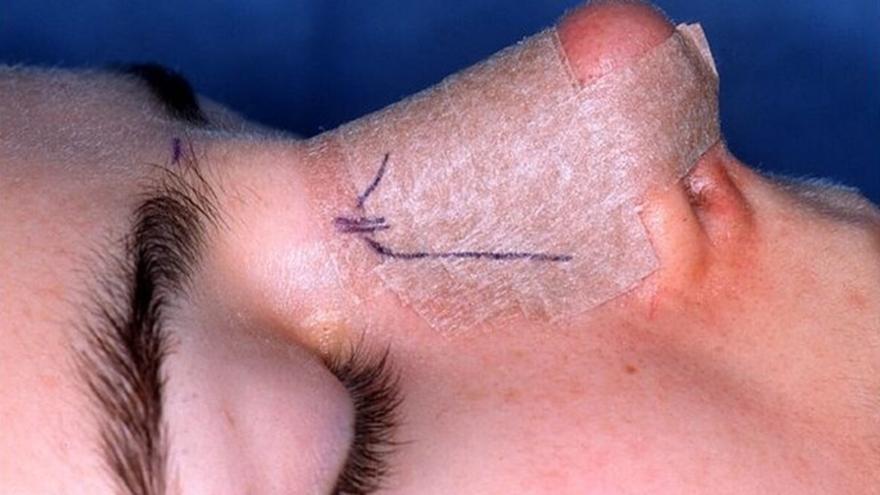this Rhinoplasty It is the second most common facial plastic surgery procedure in Spain, after upper eyelid surgery (upper blepharoplasty).
related
The Spanish Society of Otolaryngology and Head and Neck Surgery (SEORL-CCC) estimates that approximately 30,000 rhinoplasty surgeries are performed in our country every year. Of these, 70% are performed by head and neck surgeons, otolaryngologists, but what happens to the remaining 30%?
Well, experts are convinced that it’s increasingly common for these operations to be conducted under questionable conditions because discount “Low-Cost” Rhinoplasty.
These cheap interventions do not even cover the minimal cost of surgery to keep patients safe and healthy.
Post-pandemic plastic surgery ‘boom’: What procedures are Spaniards undergoing now?
50% of patients with poor surgical results have to undergo surgery again
This lack of safety and qualification means that head and neck surgery specialists must once again operate on these patients. In fact, SEORL-CCC estimates that reintervention rates after “low-cost” rhinoplasty surgeries may exceed 50%, as these surgeries do not consider functional aspects and focus only on aesthetics.
and as Dr. Eduardo MoreiraSEORL-CCC Facial Plastic Surgery Committee Chair:
-
“When someone offers us surgery at a staggering discount, the price is always to ignore the basic elements required for the surgery and to provide the patient with the bare minimum.”
Not just an aesthetic issue
Cosmetics are not the only reason why patients resort to rhinoplasty. Breathing problems can also cause this need.
-
“We have encountered men and women with nasal breathing problems who requested re-intervention after going to ‘low-cost’ clinics for rhinoplasty surgery with aesthetics in mind only. However, we cannot forget that these surgeries must preserve or improve the appearance of the nose. Function.”
We must not forget that otolaryngology is the only specialty that comprehensively addresses nose problems and incorporates the dual functional and aesthetic functions of rhinoplasty into national training programs.
Therefore, the SEORL-CCC Committee on Facial Plastic Surgery warns interested persons of the importance of seeking an otolaryngologist for results.
According to recent research, Revision rates after primary rhinoplasty range from 5% to 15%nasal congestion is one of the most common reasons for reintervention.
Turkey teeth, what is the dangerous trend that has affected the first Spanish patients?
Things to note during rhinoplasty surgery
Nasal function is essential for well-being and health, which is why the aesthetic and functional areas should not be separated. The reality is that some patients are unaware of this relationship and choose cosmetic surgery without considering whether they suffer from nose function problems.
“If the functional component is not adequately treated, patients may develop symptoms that worsen their quality of life, such as difficulty breathing, making normal physical activities and night’s rest difficult,” Dr. Moreira explains.
Therefore, patients must be examined by an otolaryngologist to check for any type of nasal breathing problem, such as a deviated septum, chronic rhinitis, or sinusitis.
And this test can only be performed by an otolaryngologist. He is uniquely qualified to treat all functional problems of the nose and perform aesthetic corrections according to patient requirements.
-
Additionally, the final shape of the nose must be agreed upon with the patient prior to intervention. Facial features, ethnicity, or personal aesthetics must be considered without neglecting nasal function.
The goal of rhinoplasty surgery is to achieve a harmonious, natural-looking nose that allows you to perform activities of daily living and is stable over the long term. A good rhinoplasty surgery can provide lifelong benefits.
Therefore, experts in otolaryngology and head and neck surgery claim it is important that patients suitable for nasal surgery are evaluated by the right specialist to prevent patients from having to undergo new procedures. Experts increasingly see this in their consultations.

